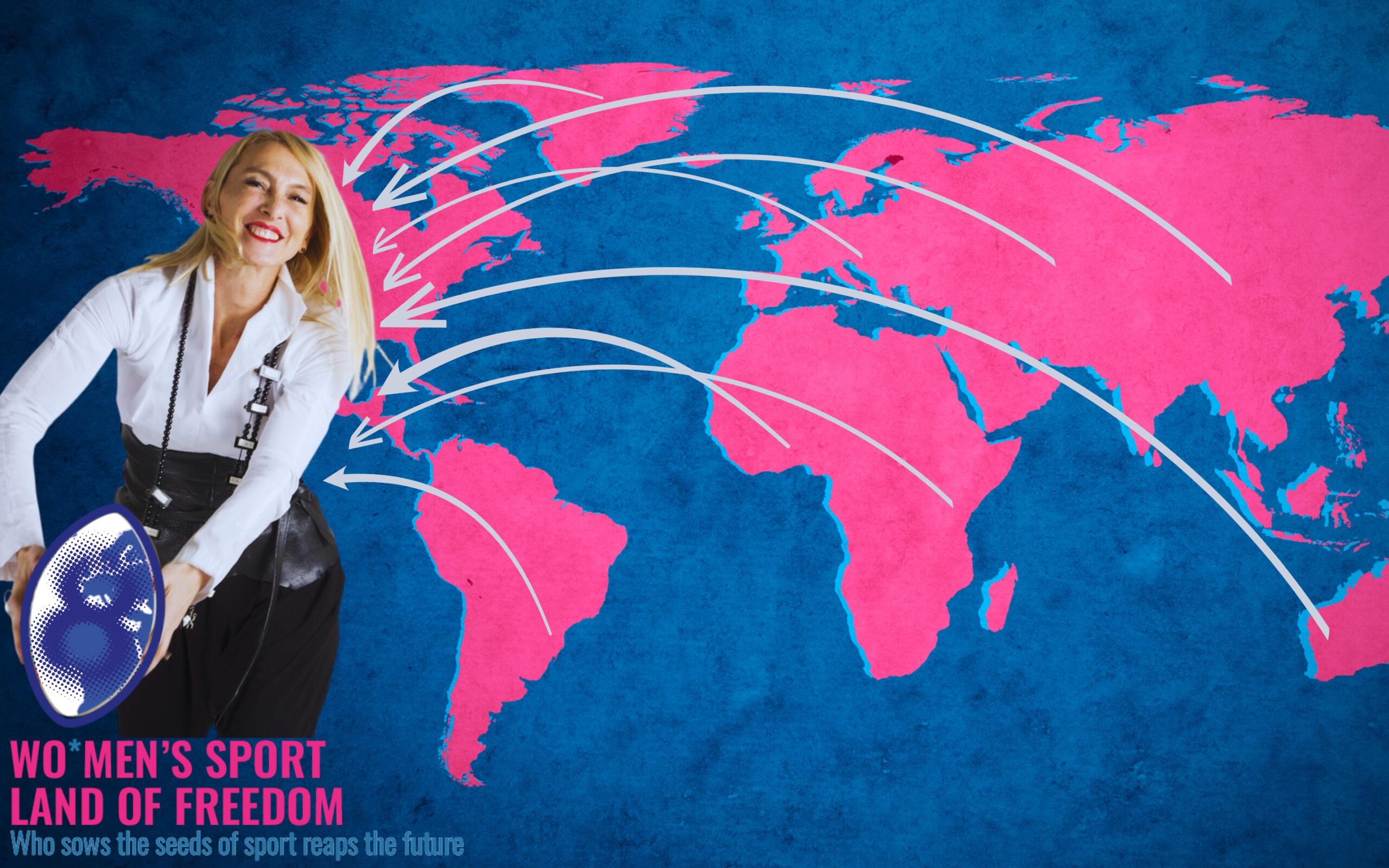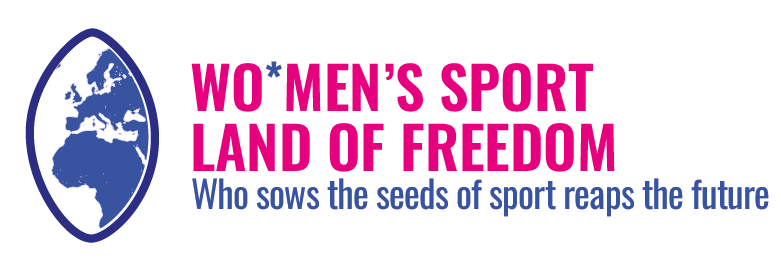
BARBADOS: TEAMWORK IS ONE OF THE MOST IMPORTANT FOUNDATIONS NOT ONLY IN RUGBY BUT ALSO IN MY DAILY LIFE.
“Teamwork is one of the most important foundations not only in rugby but also in my daily life”

Thanks to:
Alanna Quintyne
Player and Fixtures Officer
Danielle Phillips
Director of Women’s Rugby
- The history of the women’s movement in Barbados
- Testimonials
- Reading time: 7 minutes
BARBADOS - Find out more
Barbados is an island state in the Eastern Caribbean with a population of about 281,000 in 2024, of which 50.9% are women. Women hold 28.6% of parliamentary seats and participate in the labor force at 55.8%, compared to 72.4% of men. Despite high levels of female education, disparities remain in leadership roles, pay, and the distribution of domestic and care work.
(SOURCE: data.unwomen.org; World Bank Gender Data Portal; IPU Parline; Government of Barbados Statistics)
HISTORY OF THE COUNTRY
1. When did the women’s rugby movement start in your country and what is its history? How is rugby structured in your country?
Women’s rugby began in 2004. Karen Holmes, a local rugby veteran, expressed her interest in playing, and Martin Varga helped make this possible by recruiting a few girls from a local hockey team, thus forming a rugby team. Women’s rugby has historically been a niche sport. With a population of fewer than 300,000, the recruitment pool is limited. Nevertheless, despite difficulties such as prejudice against the sport and social norms discouraging women from contact sports, numbers fluctuate but the sport persists and continues to grow. Currently, there is only one women’s rugby club, the Bajan Pride Women’s Rugby Club, which exists mostly for administrative purposes. When matches are played, women are divided into four clubs and play under these teams for the season.
2. Do you think playing rugby has a social impact for a woman in your country?
Yes, it has a positive social impact. Rugby is one of the most inclusive sports in Barbados. No matter your age, weight, height, or skill level, there is a place for you on the rugby field. Here in Barbados, it is probably one of the few sports where new recruits and veterans can play side by side during a training session. Rugby is where women and girls can come together, have fun, and exercise at the same time. They can build friendships and camaraderie, learn a new skill, and encourage each other to succeed.
3. In your opinion, what can rugby give to women in your country?
Rugby can offer women opportunities for growth both on and off the field. On the field, they can develop communication and leadership skills, especially during matches. Many of the principles of rugby applied in the game can also be used off the field, in real-life situations and in the workplace. Additionally, there are training and leadership opportunities available both locally and abroad, depending on the pathway one wishes to pursue. But the most important opportunity is representing your country at a global level – an unmatched feeling that not everyone gets to experience.
JOURNEYS THROUGH RUGBY
1. When did you start playing rugby and how you discover it?
I started playing in 2014, when a program was introduced at my high school during my senior year. I first learned about rugby when I was no more than 10 years old. I was watching a sports channel with my brother, and a rugby commercial came on. It showed rugby in a more aggressive light, which scared my 10-year-old self, but that didn’t stop me from trying it later in life.
2. What has rugby taught you that has had an impact on your daily life? Can you give me an example of when a rugby mindset was useful?
Some of the main lessons I have learned from rugby that have impacted my life are teamwork, discipline and time management, resilience, and mental toughness. Teamwork is one of the most important foundations not only in rugby but also in my daily life. Working in a highly collaborative, group-oriented environment focuses not just on my success but on the team’s overall success. Effective communication and asking for or offering help are traits that now come naturally to me after honing them on the field. As for discipline and time management, learning to balance consistency, hard work, and maintaining a training routine with daily commitments such as school and work was difficult, but it definitely taught me to prioritize and stay on top of everything. Finally, resilience and mental toughness are not second nature to me; however, rugby is a physically demanding sport where you get knocked down and must find the strength to get back up. This shaped my mindset and allowed me to embrace setbacks in daily life, focusing on finding solutions and overcoming difficult situations. One example of when rugby’s mindset and resilience helped me was during a tough season when I thought about quitting the sport altogether. I had suffered some injuries and no matter how hard I trained, I couldn’t perform at my usual level. Frustration built up, and I started to think it wasn’t worth it to continue. However, the resilience I had developed through rugby began to kick in. I decided to push through that period and focus on small, incremental improvements. I worked closely with my teammates, coaches, and other club members to identify areas to improve and aimed to get a little better every day.
3. Can you give me three words that connect rugby with freedom?
Power – Growth – Expression.
Power – Rugby is an environment that empowers players, helping them build confidence and resilience both on and off the field. It gives them the freedom to take control of situations, trust their abilities, and thrive under pressure. This empowerment extends beyond the game, encouraging individuals to take responsibility for their own lives and choices.
Growth – There is always an opportunity for improvement in rugby. Players have the freedom to fail, learn, adapt, take risks, and try new things.
Expression – Rugby encourages players to express themselves freely, developing their individuality while being part of a team.
4. What does it mean to you to live in a land of freedom?
For me, living in a land of freedom means having the ability to make my own choices, express my thoughts, and speak freely. It also means feeling safe and valued, knowing my rights are protected.
5. Which object represents you and why? What is a quote that guides your life?
I think a rugby ball represents me for its energy, enthusiasm, and ability to “go with the flow.” I try to bounce back and adapt to whatever life throws at me.
“You miss 100% of the shots you don’t take.” – Wayne Gretzky
